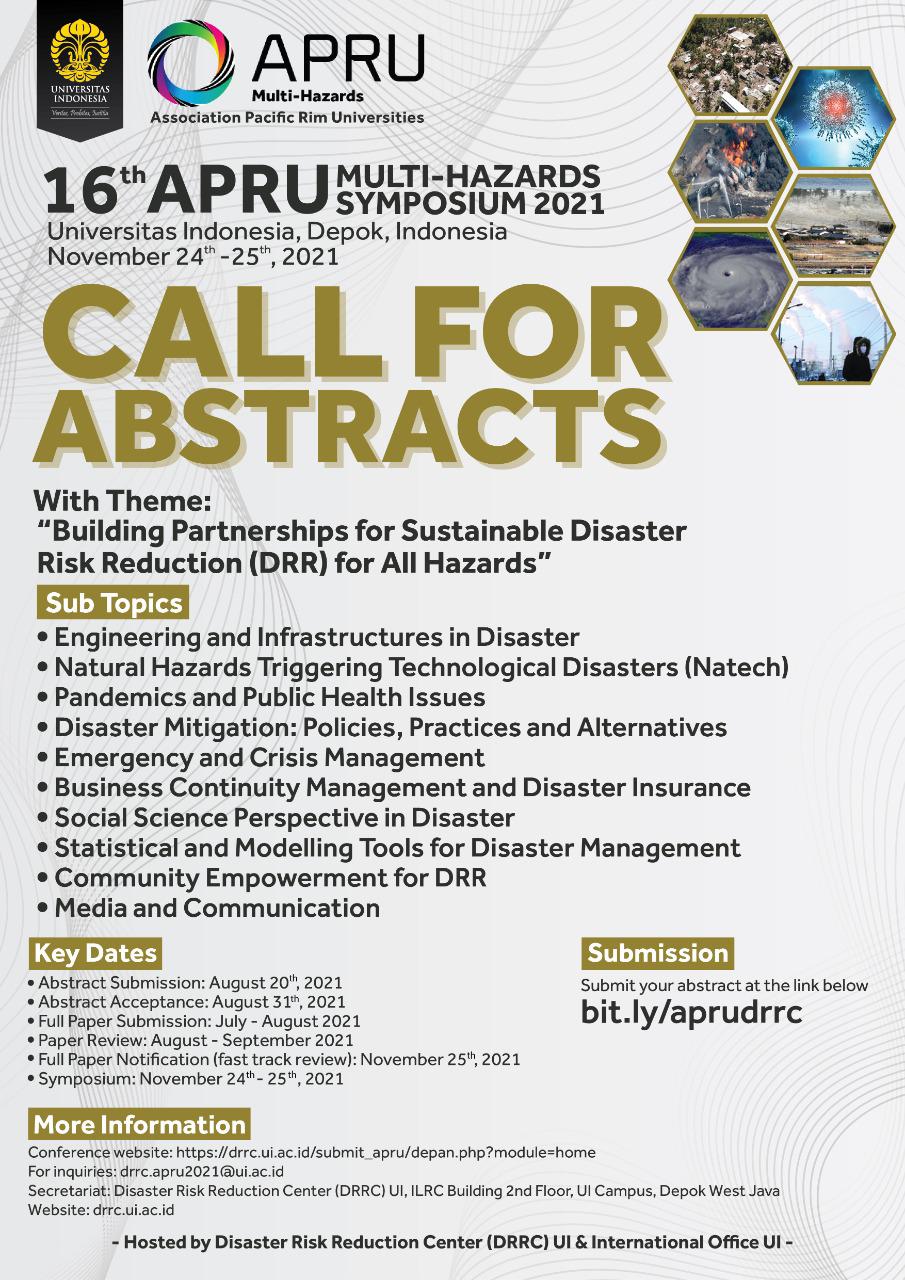
Building Partnerships for Sustainable Disaster Risk Reduction (DRR) for All Hazards
BACKGROUND
About APRU Multi-Hazards
40% of the world’s natural disaster events and 90% of the world’s earthquakes occur in the Asia Pacific. In a region of inevitable disaster, improving the coordination and sharing of knowledge across borders is essential to deliver effective disaster reduction and recovery measures.
As one of the most disaster-prone regions in the world, frequent natural hazards – from tsunamis to floods to volcanic eruptions- threaten the lives and livelihoods of millions of people around the Pacific Rim and result in catastrophic destruction and damage.
The losses and impacts that characterize disasters have much to do with the exposure and vulnerability of people and places as they do with the severity of the hazard event. While natural hazards cannot be eliminated by sharing best practices., knowledge and research, we can better understand risk and minimize the threat to human life.
Over the past decade, the Multi-Hazards Hub hosted by Tohoku University in Sendai, Japan has worked to harness the collective capabilities of APRU universities for cutting-edge research on the shared threat of natural hazards facing the region.
APRU collaborates with its members and partners to understand how academics, policy leaders, government, and communities, can work together to facilitate disaster risk reduction and recovery. Whether it is enhancing the reach of the Sendai Framework or sharing expertise to mitigate the danger in countries most vulnerable to disaster risks, together we can build a more resilient Asia Pacific.
More information on https://apru.org/our-work/pacific-rim-challenges/multi-hazards/
OBJECTIVES
- To provide a platform for APRU members, partners, academics, policy leaders, government, and communities to work together to facilitate disaster risk reduction and recovery.
- To share expertise in mitigating the danger in countries most vulnerable to disaster risks, and can build a more resilient in countries, especially in the Asia Pacific.
- To address the challenges and the opportunities of disaster risk reduction
- To raise awareness about the current and future issues related to disaster risk reduction.
THEME
“Building Partnerships for Sustainable Disaster Risk Reduction (DRR) for All Hazard”
TOPICS*
- Engineering and Infrastructures in Disaster
- Natural Hazards Triggering Technological Disasters (Natech)
- Pandemics and Public Health Issues
- Disaster Mitigation: Policies, Practices, and Alternatives
- Emergency and Crisis Management
- Business Continuity Management and Disaster Insurance
- Social Science Perspective in Disaster
- Statistical and Modelling Tools for Disaster Management
- Community Empowerment for DRR
- Media and communication
PARTICIPANTS
Participants consist of International academics, researchers, students, government officials, professional associations, non-government organizations.
IMPORTANT DATES
-
Abstract Submission: August 20th, 2021Abstract Acceptance: August 31st, 2021
- Full Paper Submission: July – August 2021
- Full Paper Acceptance (fast track review): August – September 2021
- Symposium: November 24th-25th, 2021
FULL PAPER SUBMISSION:
The full paper can be submitted in International Journal of Technology Universitas Indonesia or National Public Health Journal Faculty of Public Health Universitas Indonesia
Submission
Submit your abstract here.
Format of the Symposium
The Symposium will be conducted virtually through ZOOM
Contact Us
Conference website
For inquiries: drrc.apru2021@ui.ac.id or drrc@ui.ac.id
Secretariat: Disaster Research and Reduction Centre, ILRC Building 2nd Floor, UI Campus, Depok West Java
Website: drrc.ui.ac.id
